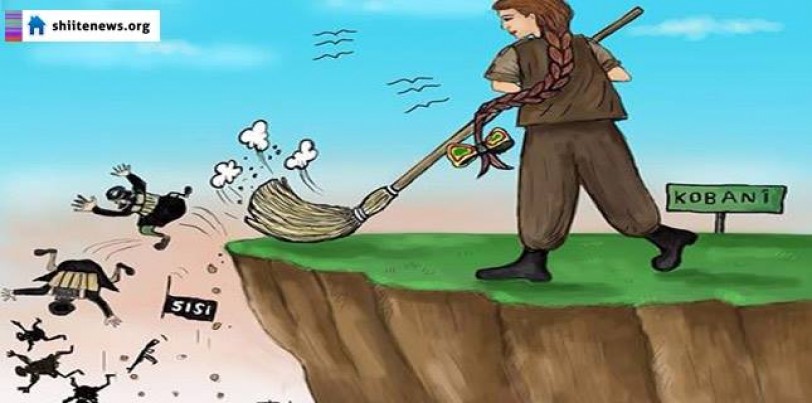- Articles
- Posted
Syrian Kurds Representation under Turkish Hummers and US Anvils
Not representing the Democratic Party (DP) as a Kurdish side in Geneva Intra-Syrian Talks is widely debated. Some diplomatic and media circles say that there is a Turkish veto on this. But is it really so?
It’s not a secret that what decides who attends and who should not attend Geneva conferences is the Russian-US agreement. If some regional players, including Turkey, are trying to expand their abilities in controlling the Syrian file. These players, nonetheless, have never been in a position allowing them to be decision makers or able to obstruct an international resolution. This is evident in their inability to prevent «Geneva» from convention, as an obligatory course for realizing the political solution of the Syrian crisis, against the wills of those forces, who also failed in enforcing the complete withdrawal of the Riyadh group from the latest round of talks in Geneva.
On the other hand, as the Russian side is clear regarding the representation of the Democratic Party in Geneva, the other US side, being supposedly a major international sponsor of these talks, is turning a blind eye to the exercises of its Turkish ally. The US didn’t only work on stopping Turkey as it should, rather it vetoed a UNSC resolution stipulating the representation of the DP. This reveals the identity of who is actually preventing this representation, despite USA pretension that it is supporting DP’s People Defense Forces with weapons and coordinating with them the fight against ISIS in the Syrian territories they dominate. Much more dangerous, though paradoxical, is the fact that many US research and policy making centers, in addition to a number of US Congressmen, are insinuating their support for the some unrealistic theses presented by the DP, like its call for a federal system in Syria.
The question remains: what lies behind this role-exchange between the US and Turkey, in this regard?
Without DP participation in realizing the political solution of the Syrian crisis, the solution would remain crippled, fragile and timely explosive. In this sense, the political solution would hold its inner elements to be turned against and aborted. The target behind DP lack of representation is the political solution itself.
Through its position that runs against the international consensus, the US is trying to cram the Kurds in tight corners, and to keep them under Turkish pressure, in order to find possibilities for consistent US blackmails against them, and when necessary for dictating US wills over the DP, although it’s a major Syrian and regional force, politically and militarily. Although the new international balance of forces compelled the Americans to go for the Syrian political solution, the US is actually unwilling to lend a helping hand in solving the Kurdish issue as part of solving the Syrian crisis, rather they would like to keep it as tension card to be used when necessary for them.
It’s not the first time the world witnesses US hypocrisy regarding the Kurdish question. After the defeat of the Iraqi army in 1990’s war, and the explosion of all Iraqi internal contradictions, including tensions in the Northern and Southern regions, some Iraqi opposition forces had illusions that they might benefit from the emerging situation, to implement their plans to bring down Saddam Hussein’s regime. The US, at the time, surprised the whole world, and the Iraqi people, by clearing the no-fly zone it had previously imposed against Iraq. The Iraqi regime was given free hands to deal with the popular uprisings in its familiar ways. What is known as the «Million People Migration» followed.
In brief, there is a complete target bank behind US hindrance of DP representation in Geneva. On one hand, it’s an attempt to foil, or at least delay, the Syrian political solution,. On the other, it’s an attempt to contain the Kurds, let alone appeasing the Turkish ally, and most dangerously keeping a high level of regional tension to «invest in» later on.



